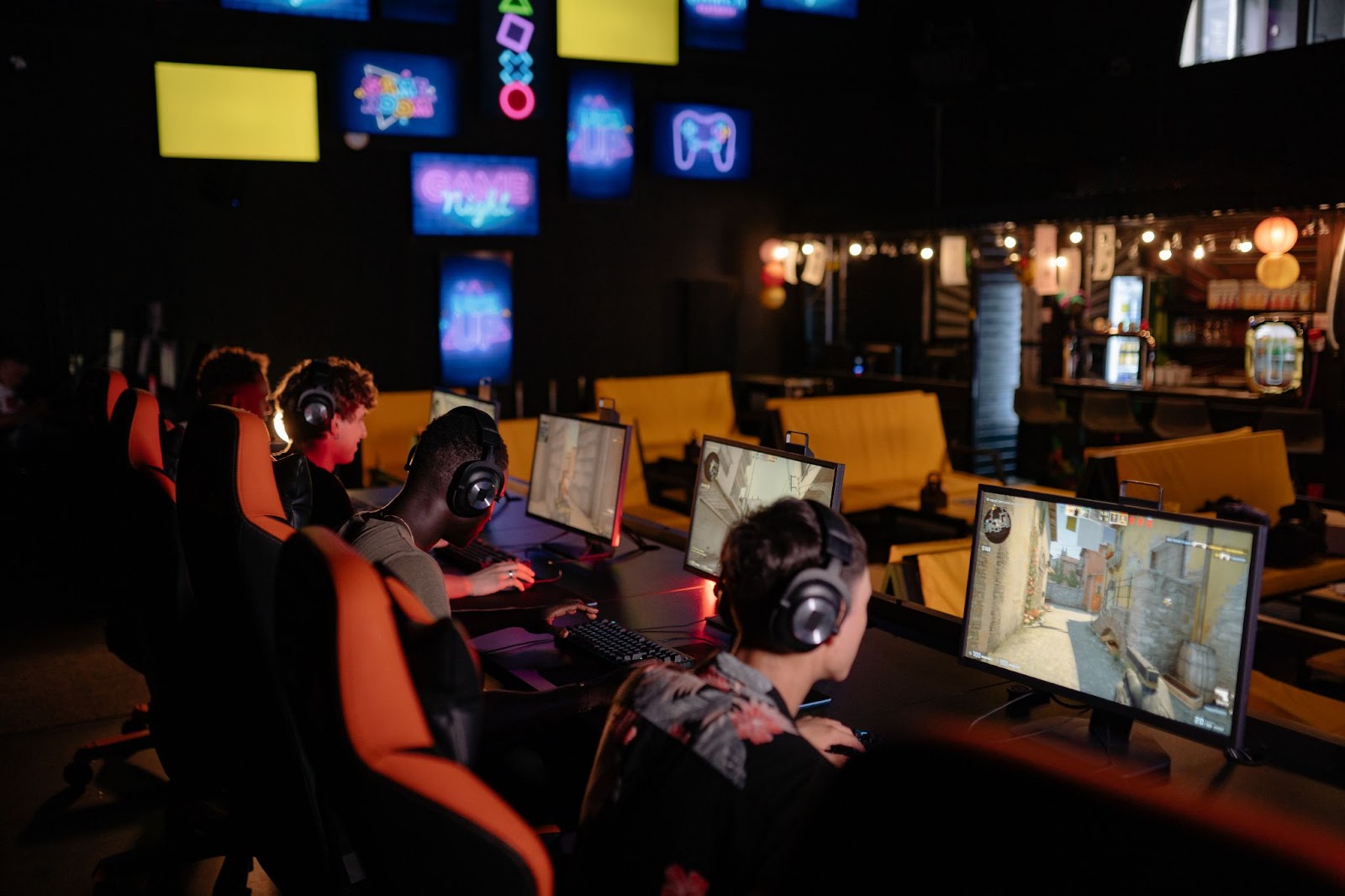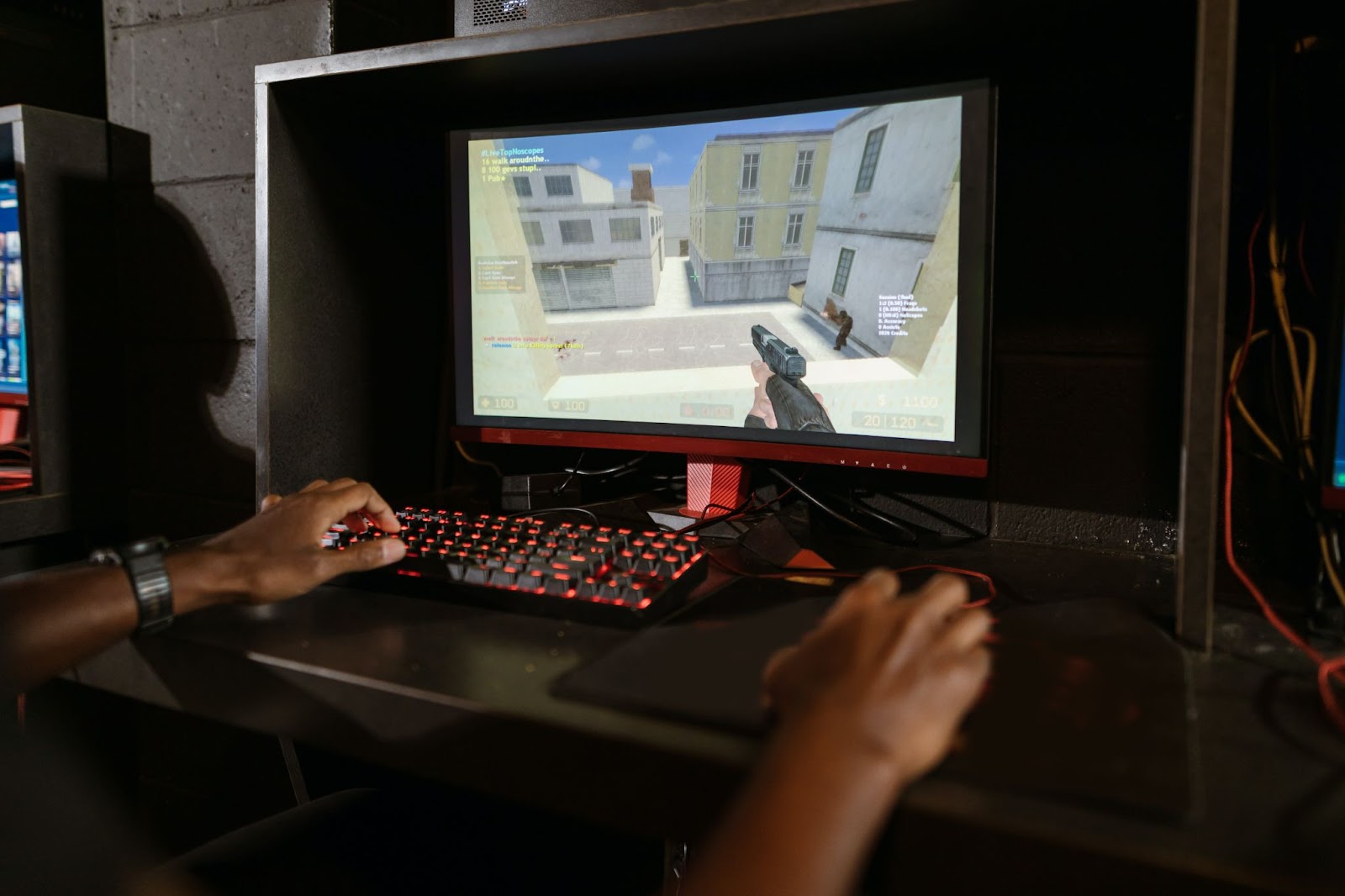
The competitive gaming industry, also known as esports, is one that has grown significantly in recent years. With the rise of competitive gaming and the emergence of professional gamers, many have begun to ask whether esports should become an Olympic sport. There are both advantages and disadvantages to having esports as an official Olympic sport that must be weighed against each other. This article will set out to examine these issues in depth, with an argument for why esports should become part of the Olympic Games.
Why Should Esports be in The Olympics
Keen to understand the challenges that Esports face in becoming an Olympic sport? Let’s start by exploring what we mean by the term ‘esports’? Esports is an umbrella term used to describe competitive organized computer and console gaming, typically involving multiple players either online or on a local area network (LAN). Players compete in various titles of their choice, across different game genres such as strategy, fighting and first-person shooters. The games are often played at a professional level, with sessions broadcast across streaming platforms such Twitch and YouTube. Organizing bodies like the Electronic Sports League (ESL) host tournaments globally, with several main events running annually. The most prestigious tournaments attract millions of viewers worldwide and see some of the best players compete for prize money that can reach into the millions for some games. For example, in 2020 the Dota 2 tournament The International offered a $40 million prize pool – making it one of the largest prizes for any single event in sports history. This high level competition is representative of how esports has become a major player in sport today.
Overview of Current Status of Esports
Since its emergence as a competitive industry in the 1990s, esports has experienced remarkable growth in popularity and viewership. In 2019 competitive gaming was estimated to have an audience of 454 million people worldwide and is projected to reach over 645 million by 2023. Consequently, interest for esports within the Olympic Games is becoming increasingly prominent both from fans of the sport and from the industry itself. With the potential prize money and exposure that being part of the Olympics could award esports, many organizations are attempting to make it a reality. However, despite high ambitions – there are numerous challenges that need to be overcome if esports is ever going to become an Olympic event. FIFA (Fédération Internationale de Football Association) Esport has shown that there can be an Olympic pathway for certain titles – but it still faces significant historic and present-day difficulties gaining full acceptance by organizations such as Game Developers Association (GDA) or International Esports Federation (IeSF). Some of these issues include proving itself as a legitimate sport, designing tournaments with mass appeal which adhere to Olympic regulations and creating a structure where gamers can reach peak performance in a single tournament series without neglecting their team roles or game knowledge. The road isn’t easy – but especially amongst younger demographics, games are now one of the most popular forms of entertainment, with millions tuning into major events all over the world every year. If performed correctly – this could mean huge potential for growth within both traditional sports and leisurely activities. Thus – it’s essential that stakeholders continue to strive – pushing esports into becoming a part of prospective future games’ line-up which will contribute significantly in terms of international celebration, competition & collaboration between different countries across the globe.
Challenges Faced by Esports
The esports industry is rapidly growing but still has to go further in order to be considered a legitimate sport. From the infrastructure requirements, to recognition from the International Olympic Committee, there are many challenges that esports will have to face in order to be a part of the Olympic Games. In this article, we will explore some of the hurdles esports must overcome in order to become an Olympic sport.
Lack of International Recognition
One major challenge that esports seriously need to overcome in order to become an Olympic sport is the current lack of international recognition of the sport. While esports have been around for decades, they are still not viewed as a legitimate form of competition or sporting activity by many countries. This undermines the potential for esports to be taken seriously as a valid form of athletic competition that can be included as an official Olympic event. Furthermore, while many countries are beginning to recognize esports more and invest in it, competitions prevail primarily in nations with more advanced digital infrastructures and access to technology. The International Olympic Committee has yet to come on board with these developments, further limiting the chance for esports adoption into larger global sporting events such as the Olympics.
As with other forms of sports, greater international recognition and acceptance of esports will require more inclusive policies from national governments regarding sponsorship and endorsing regulation frameworks as well as improvement on existing levels of infrastructure so that countries without access to certain technology can participate in competitions on equal footing with better off nations. Without this level playing field, it is difficult for any competitive sport or esport to attain universal status on a global scale.
Lack of Regulation
The esports industry is an emerging global entertainment phenomenon and its growth is a testament to the power of gaming and the incredible skill of its players. But just like any budding industry, esports in its current form presents a unique set of challenges when it comes to governance and standardization. Because there is no single governing body for esports, each competitive product or title must be regulated on an individual basis. This lack of cohesion or regulation has been an obstacle in the push for esports to be recognized as a legitimate sport on the world stage. Competition between amateur and professional teams requires standardized regulations in order for events to be deemed fair play. Until recently, many professional teams have lacked proper representation or were held back by extremely restrictive contracts with their sponsors. Another challenge lies in the lack of transparency that exists throughout pro circuits, which can make it difficult to ensure integrity and accountability within global tournaments and competitions. Furthermore, many traditional sports pathways overlook esports as a viable alternative; relegating players to independent platforms such as Twitch or YouTube Gaming instead. As public recognition grows with every passing year, it’s critical that governing bodies recognize the potential — both financially and culturally — that exists within this growing entertainment sector before broader acceptance can occur on a global scale.
Lack of Standardization
One of the biggest challenges facing esports in becoming an Olympic sport is the lack of standardization and regulation. Despite being one of the fastest growing spectator sports in the world, esports still has no international governing body to regulate tournaments and make sure there is fair play and consistency in performances. This has led to a fragmented esports market with different rules, teams, players and gameplays. Another issue is that although there are many popular tournament formats, they lack standardized rules and regulations. This means different countries may be playing by different standards depending on the tournament organizer or governing body. The lack of universal guidelines makes it difficult for players from different countries to compete against each other on an equal footing. In addition, even within an individual game genre like first-person shooter games or real-time strategy games that are popular in esports, there can be multiple rule sets due to differences between tournaments or championships run by their respective organisers. Without standardisation, it becomes difficult for international tournaments or championships to be run in a fair manner with predictable outcomes that potential viewers will find reliable and acceptable as true eSport competitions.

Lack of Transparency
Unlike traditional sports, esports does not have a centralized governing body and does not fall under the purview of international sporting competition regulations. This lack of transparency makes it difficult for esports to be accepted by the Olympics due to inherent issues such as fair competition and illegal activity. Esports tournaments are often sponsored by organizations which hold rights over them and have the authority to give out prize pools, create rulesets, and select organizers without a central governing body. This lack of oversight increases the risk of unfair competitors or cheating, hurting both player morale and public perception of esports as a legitimate competitive sport. To ensure competitive fairness, VAC (Valve Anti-Cheat) systems should be implemented in all professional esports tournaments. This can help detect cheaters in real-time, banning players guilty of any wrongdoings thus reducing incidents related to foul play. Similarly, organizations should switch from sponsoring individual tournaments to Esports Leagues with dedicated rules across all participating teams. Such systemic changes can help ensure players abide by Olympic ethical values while guaranteeing transparent competitions for new and existing viewers alike. Besides regulatory challenges in hosting competitions that meet the standards set by global sporting bodies, esports also faces problems associated with media coverage. Fans around the world still need to access information on tournament results, upcoming events or team rankings in order to stay engaged in their communities – this is further complicated in regions where online streaming through ESPN is not available. Establishing broadcasting deals with companies like ESPN would allow fans based anywhere in the globe an easy means by which they can watch without worrying about accessibility issues – thus helping facilitate a more global presence within esports overall which will be advantageous when becoming an Olympic sport given its international representation criteria within its guidelines for membership organizations.
Benefits of Esports Becoming an Olympic Sport
Esports has become a global sensation in recent years, and with the right support and recognition, it could one day become part of the Olympic Games. There are a number of advantages to esports becoming an Olympic sport, such as increased exposure, legitimacy, and structure. This article will explore the potential benefits of esports becoming an Olympic sport.
Increased International Recognition
One of the major benefits of esports being officially recognized by the Olympic Games would be increased international recognition. Inclusion in the Games would not only help expand viewership and participation from both competitive gamers and spectators, but also help raise awareness about competitive gaming around the world. The Olympics are an immensely recognized event, bringing together athletes from all over the world, which could potentially be even more beneficial to esports than traditional physical sports’ recognition levels.
In addition to increased exposure on a global scale, endorsement from the Olympic Games would bring with it greater respect for professional gamers and an understanding that skill, dedication and hard work are required for success in esports just as much as any other sport. This could open up immense opportunities for promising gamers to gain sponsorships or even receive financial support from governments or organizations dedicated to sponsoring athletes preparing for the Olympics. Finally, it could potentially lead to a new appreciation of gaming in general. If people understand that high levels of skill and concentrated effort are necessary to succeed in professional gaming leagues such as those operated by Major League Gaming or World Cyber Games, then they may come to view video games as more than just time wasters or a means of entertainment only suitable for children. This recognition could lead to widespread growth in viewership numbers around the world or even see video games recreated within school curricula as part of physical education classes along with sports such as volleyball or basketball.
Increased Regulation
The Olympic Games are the largest sporting event in the world and participation in them is seen as playing at the elite level of international sports. As esports moves closer to being officially recognized by the International Olympic Committee (IOC), it will undoubtedly bring in new rules, regulations and best practices that must be adopted by all professional gamers. This is beneficial for several reasons, as increased regulation brings some key advantages to the world of esports; Firstly, regulation helps to create a more fair and secure environment for participants and teams. With clear regulations outlining rules for competition, team formation, streams and tournaments, those involved in esports will have better protection from various issues such as cheating and online harassment. Additionally, having standards that teams must comply with can help ensure greater parity among competitors and prevent larger organizations from dominating smaller ones. From a spectator’s perspective, this kind of regulation also ensures better quality matches between top-level teams. Rather than having unbalanced matchups with predetermined outcomes due to one side having superior resources or more experienced players, viewers can expect newer ideas, unexpected strategies and hard-fought battles when two teams go head-to-head complying with established rulesets. Lastly but perhaps most importantly, increased regulation can benefit esports athletes directly by providing greater job stability and career opportunities. With their competitions following set procedures outlined by governing bodies such as IOC or other associations like ESL Gaming Network (ESL), esport professionals have a clearer path forward to progressing from amateur to professional competition without fear of immediate expulsion or contract termination due to unfair play or other unethical behavior. Moreover, standards like these also pave the way for more consistent salaries across different leagues and levels within a given game title helping players make more informed decisions if they choose to change teams or switch games entirely during their career journey within esports.

Standardization
Standardization is one of the biggest challenges that esports has to face before it can become an official Olympic sport. Unlike traditional sports, esports tournaments are organized by different companies and organizations. These companies and organizations often have different rules and regulations for their tournaments; this makes it difficult for the International Olympic Committee to determine one rule set that is fair and applicable to all involved. Furthermore, there needs to be a broad consensus on the skills or accomplishments necessary to qualify as an athlete or professional in the sport. This adheres to the Olympics requirement that sports make sure competition is open, fair, and inclusive – meaning everyone should have fair access regardless of their gender or disability. Currently, only around 8% of competitive esports players are female due largely to underlying issues with equality standards. It’s vital that any proposed regulations acknowledge these underlying issues and actively seek ways to address them in order for esports to ever become an Olympic sport. With solidarity across all industry groups, standardizing competitive gaming would make qualification much easier for the IOC as each participating country could assign teams from respective tournaments using recognized criteria such as rank points accrued from major events throughout the year. This system would also greatly benefit current players who wish to be involved with elite level competition by giving them more opportunities for international recognition within a structured framework of qualification criteria.
Increased Transparency
The increased transparency that comes with becoming an Olympic sport would be a significant benefit for esports. Olympic standards and regulations provide stringent enforcement of rules, ensuring that fair competition can take place. This would give professional gamers the reassurance that their craft is respected and ensures that the playing field is level for all competitors. Additionally, the heightened visibility of an Olympic sport could have a great impact in raising awareness of the potential career opportunities available to professional gamers. The prospect of esports being recognized as a legitimate international event could also bring increased investment from sponsors, allowing players and teams to be better remunerated for their efforts.
Conclusion
In conclusion, esports present a unique set of challenges when it comes to Olympic inclusion. There is the need to bridge the gap between the traditional and esports worlds, along with considerations of gender diversity and potential sponsorship opportunities. While there is still much work to be done, with continued collaboration between all stakeholders, esports can provide an exciting new challenge for both athletes and viewers alike in the Olympic arena. With more nations taking proactive approaches towards this development, it’s looking more likely that esports will make its way onto our screens in the years to come.




